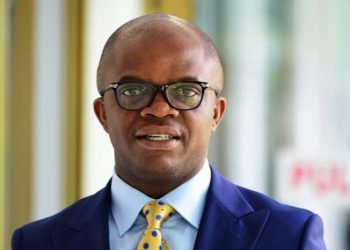Member of Parliament for Nhyiaeso and former Deputy Finance Minister, Dr. Stephen Amoah, has criticised the National Democratic Congress (NDC) government for what he describes as selective credit-taking over recent improvements in the Ghanaian cedi.
He argues that if the NDC wants to claim credit for the recent currency gains, it must also take responsibility for the ongoing challenges in the energy sector.
Speaking on Citi FM’s Eyewitness News on Wednesday, May 21, Dr. Amoah expressed concern over what he perceives as an unfair narrative that downplays the economic recovery efforts of the New Patriotic Party (NPP) while blaming them for lingering problems like power outages.
“Then they should also take whatever credit they want to take when it comes to the energy sector crisis we are having now. When it comes to the dumsor, they say we just came to power; when it is the exchange rate, they say no, they have been able to put measures in place. Honestly speaking, that is not true,” he said.
Dr. Amoah attributed the cedi’s recent stability to policies introduced by the previous NPP administration, including reforms in cocoa syndication and strong fiscal measures.
“Cocoa prices are very high on the international market now…It was the NPP government that for the first time to the best of my memory, when we had to do cocoa syndication, we domesticated that policy, to the extent that hundreds of millions of dollars that were supposed to be paid to foreign bodies were directed here to the banks in Ghana, the Bank of Ghana,” he noted.
He continued, “So we are talking about the accumulation of dollars in our systems…You talk about other factors of exchange rate or forex exchange rate, you deal with primary balance, trade balance, you deal with how your economy is being stabilised, how the economy is growing to put confidence in the minds of investors, both foreign and Ghanaian.”
Dr. Amoah argued that Ghana’s current economic performance is largely built on the foundation laid by the NPP, including achievements that led to approval and funding from the International Monetary Fund (IMF) and other global partners.
“Last quarter 2024, our GDP had grown to almost 6%, I think 5.6%, even higher than we inherited in 2016…If we had not been fiscally disciplined throughout 2023 through 2024, how would we have been able to get board-level approvals from the IMF and the other world bodies for us to get all those credits and monies that we got into this country? Because we have been very disciplined,” he stated.
He also dismissed claims that the current administration’s early spending restraint reflects a deliberate governance choice, suggesting instead that it is simply due to the ongoing government transition.
“You are not spending because you are now putting your government structure in place. So even if they are saying they are being disciplined, it is not a matter of discretionary policy or decision; it is a matter of them forming their government,” Dr. Amoah noted.
He concluded by asserting that the economic gains Ghana is enjoying now stem largely from the groundwork laid during the final stages of the NPP’s tenure.
“So it looks as if everything we are enjoying now basically comes from the proceeds from last quarter,” he added.
Read also…
Suspended CJ Torkornoo petitions Supreme Court to block two Justices from removal case
